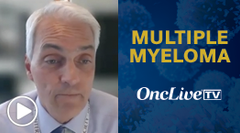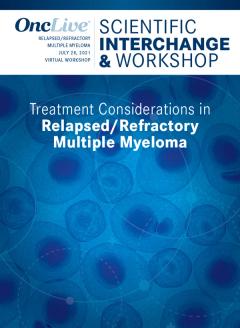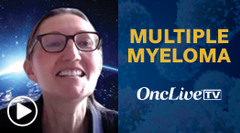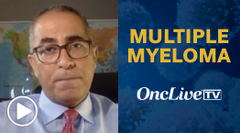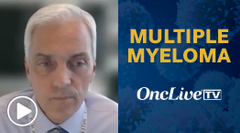
Dr. Martin on the Utility of Quadruplet-Based Regimens in Relapsed/Refractory Multiple Myeloma
Thomas G. Martin, MD, discusses the potential utility of quadruplet-based regimens in relapsed/refractory multiple myeloma.
Episodes in this series

Thomas G. Martin, MD, director of clinical research, clinical professor of medicine, Adult Leukemia and Bone Marrow Transplantation Program, associate director, Myeloma Program, co-leader, Hematopoietic Malignancies Program, Helen Diller Family Comprehensive Cancer Center, University of California, San Francisco, discusses the potential utility of quadruplet-based regimens in relapsed/refractory multiple myeloma.
Some research has emerged regarding quadruplet-based approaches for patients with early relapsed multiple myeloma, Martin says. However, because quadruplets, such as daratumumab (Darzalex) plus lenalidomide (Revlimid), bortezomib (Velcade) and dexamethasone (RVd) or isatuximab-irfc (Sarclisa) plus RVd, are poised to become standard options in frontline transplant-eligible and -ineligible multiple myeloma, quadruplets may not be needed in the relapsed/refractory space, Martin explains.
For example, if a patient derives an up-front response with a quadruplet that lasts 6 or more years, the options available to treat their relapsed disease may be different from those available when they present with newly diagnosed disease, Martin says. At that time, BCMA-, CD3-, or GPRC5D-directed bispecific T-cell engagers in combination with lenalidomide or pomalidomide (Pomalyst) and dexamethasone could be standard regimens in the relapsed/refractory paradigm, Martin concludes.



